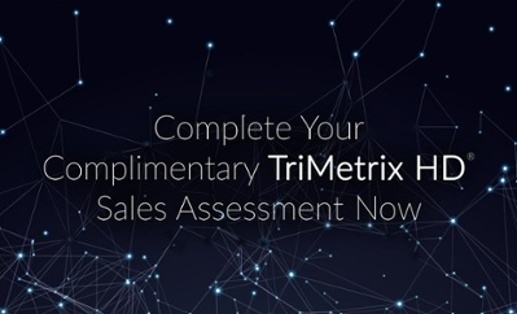 Do you know what your employee team members value?
Do you know what your employee team members value?
You should! Why? A team member is motivated by what he or she values.
If you want to emotionally connect with them and improve employee engagement, you will make the effort to know what team members value. You will not "guess" what your employee team members value, you will actually know definitively. The only way you can possibly know what your employee team members value is if you measure their values using a personality profile like the TriMetrix® HD.
It is my passion to honor the greatness in those I work with by communicating and relating to them in a manner that serves their needs, which is why I was greatly disappointed in myself when I recently realized I was communicating to a team member in a way that conflicted with her values. I will share more about this recent experience, but first let's find out more about values.
In Types of Men, Eduard Spranger, a German philosopher and psychologist, shares his "value attitudes" model. They include:
- Theoretical - The discovery of truth.
- Utilitarian - The interest in what is useful. The Utilitarian is interested in gaining a return on investment of time, energy, and money.
- Aesthetic - The value of "form and harmony". Higher Aesthetics are more interested in self-actualization and may have an increased interest in the "finer things" in life as well as the outdoors, their surroundings, and creativity.
- Social - The love of people - helping others. The high Social has a strong desire to invest themselves in helping others without expectations of a return.
- Individualistic - The interest in power. A high Individualistic seeks to shape their own lives and that of others.
- Traditional - The value of unity or living life in a particular manner or system. A high Traditional seeks a higher meaning in life through a system of living.
A person will have a combination of these values but can have one or a few values that are dominant.
In my particular case, I have a high Utilitarian, Individualistic, Traditional value combination. I seek to do well financially, be in control of my future, and leave the world in a better place. Many, not all, CEOs share the Utilitarian and Individualistic values that I have.
On the other hand, there will be definite times where employee team members may have completely different values relative to the leadership of the company and team. Following are some ways a dominant value may "collide" with others.
- A high Utilitarian speaking about seeking a "return on investment" or discussing finances in general may impact someone who is a high Social. At a team meeting, the high Social may begin by asking how everyone's weekend was, while the high Utilitarian is irritated by this because she would like to use her time wisely and "get on with it."
- A high Traditional team member communicating their strong beliefs about a particular subject to someone who does not share these beliefs may be offended. For example, I firmly believe Apple is the only place to go for all my tech devices. However, a team member may be offended by this if he or she is, unfortunately, a Microsoft user.
- A team member with a high Individualistic may offend others with his or her power and the need to reassure this power. This is what occurred with the team member I mentioned above. I would share with her the amount of success I have achieved recently and in the past but found out this actually "ground her gears."
- Measure your employee team member values using the TriMetrix® HD. Identify what I call their "value's gateways" - the values the employee team member is inspired or motivated by.
- Make time to discuss with your employee team member their values and share yours.
- Consciously "flex" your communication. If you are trying to enroll your employee team members to your vision - communicate as consistently as possible through their "values gateways" not yours.
If you are seeking to better connect, to increase employee engagement, this is potentially a powerful way to do so. It takes time, energy, and commitment yet the rewards are well worth the effort.




